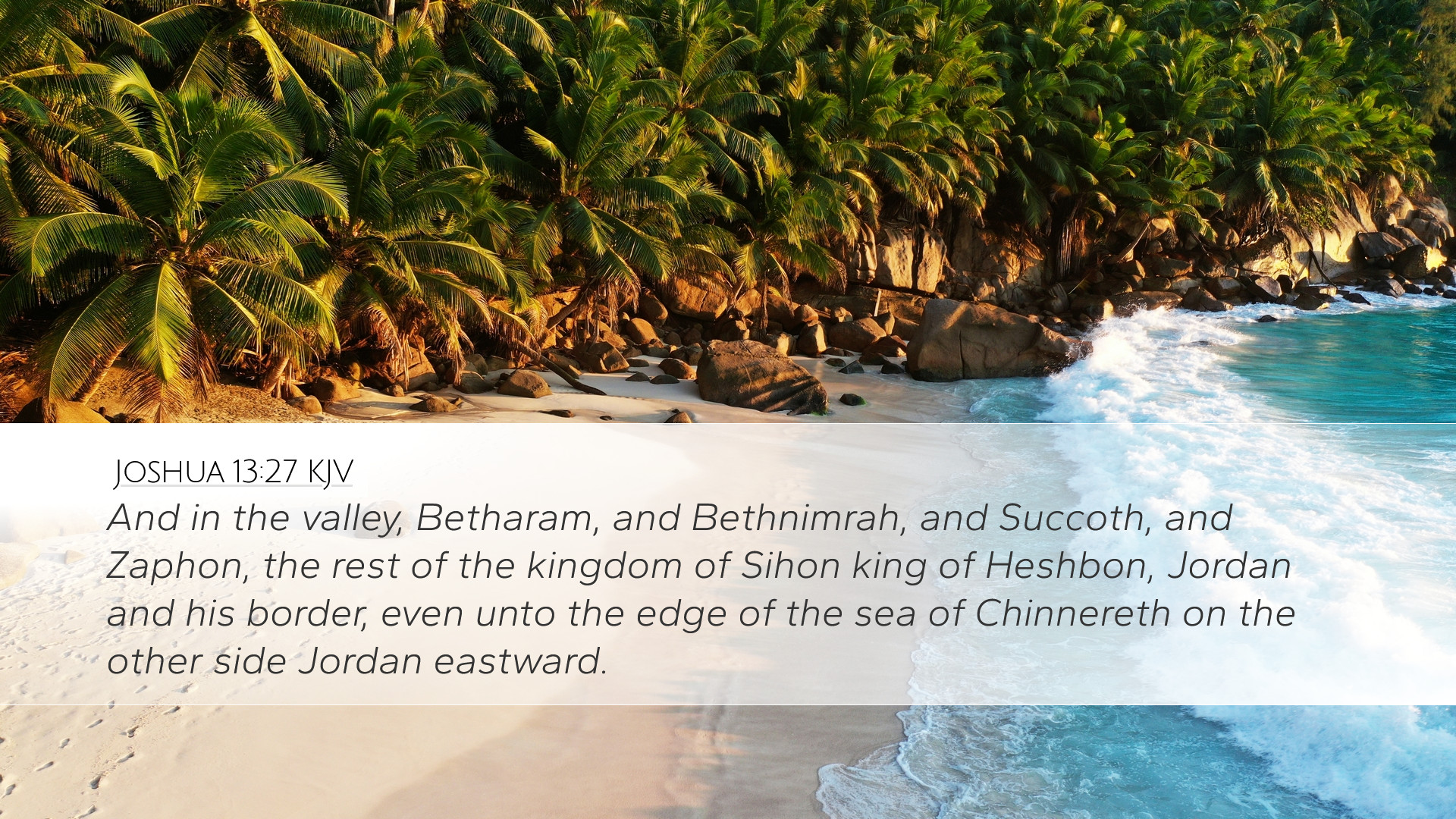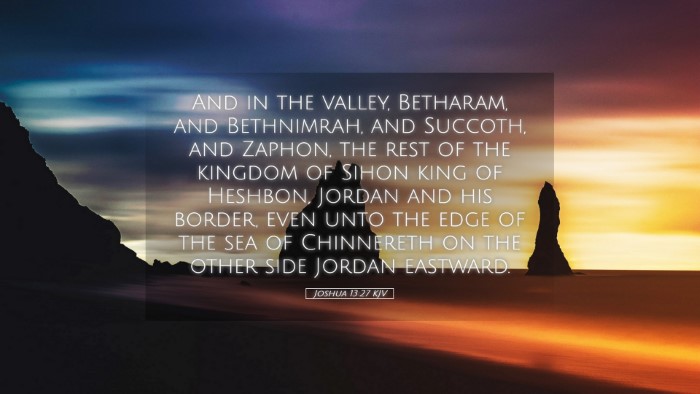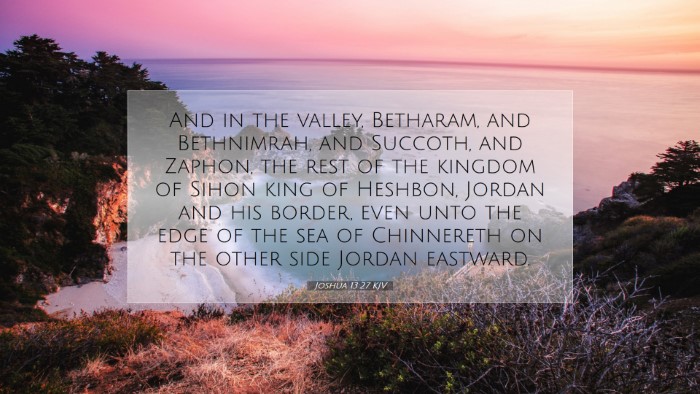Commentary on Joshua 13:27
In Joshua 13:27, we find a specific mention of the inheritance allotted to the half-tribe of Manasseh. The verse reads:
"And half Gilead, and the city of the kingdoms of Sihon, which were in the region of the Amorites; and the cities of the plains, and all the kingdom of Og, which was in Bashan." (Joshua 13:27)
Contextual Overview
This verse falls within a broader narrative detailing the division of land among the Israelite tribes following their conquest of Canaan. It highlights the portion assigned to the half-tribe of Manasseh, which was significantly significant both in geographic and strategic terms.
Historical Significance
Historically, the areas mentioned, such as Gilead and Bashan, were rich in resources and fertile land, making them sought after by the Israelites. The significance of these regions is further amplified by their previous inhabitants—the Amorites and the kingdoms of Sihon and Og—which are noted for their strength and resistance against the Israelites.
Theological Insights
Several public domain commentaries offer valuable insights into the theological implications of this inheritance.
-
Matthew Henry’s Commentary:
Henry emphasizes the faithfulness of God in providing for His people. He notes that the land was specifically chosen for them as a fulfillment of the promises made to the patriarchs. The inheritance of Manasseh serves as a reminder of God's covenant faithfulness throughout generations.
-
Albert Barnes’ Notes:
Barnes points out the strategic nature of the land allocation. He elaborates on the importance of Gilead and Bashan in terms of military advantage and agriculture. By positioning the half-tribe of Manasseh in these territories, God ensured that the Israelites had access to fertile grounds while also maintaining a defense against potential threats from neighboring nations.
-
Adam Clarke’s Commentary:
Clarke provides a detailed description of the geographical area, giving insights into the cultural and historical context of Bashan. He discusses the significance of Og, the king of Bashan, whose defeat showcased God's power over formidable foes. This aspect connects the land inheritance to the larger narrative of divine victory and providence.
Literary Structure and Composition
From a literary perspective, this verse reflects a structural intention in the Book of Joshua. The enumerative style demonstrates order and purpose in the land distribution, enhancing the theme of God's providence. The mention of specific cities and kingdoms serves to anchor the narrative in a real geographical context, reinforcing the notion of fulfillment of divine promise.
Application for Contemporary Readers
For pastors, students, theologians, and scholars, Joshua 13:27 raises several pertinent themes:
-
Divine Faithfulness:
The careful distribution of land exemplifies God’s unwavering commitment to His promises. Reflecting on this can inspire confidence in God's faithfulness in our lives today.
-
Strategic Kingdom Living:
Understanding the strategic placement of the tribes can encourage contemporary believers to think about their own positioning within God’s plan and how they can serve effectively in their respective communities.
-
Overcoming Giants:
The defeat of Og—as exemplified in this passage—serves as a metaphor for overcoming the giants in our lives. Believers can draw strength from this narrative, knowing that in God, they can conquer seemingly insurmountable obstacles.
-
Importance of Heritage:
The land inheritance represents more than mere territory; it symbolizes the spiritual heritage passed down through generations. This encourages members of the faith community to consider the legacy they are creating for future generations.
Conclusion
Joshua 13:27 encapsulates the faithfulness of God in fulfilling His promises to Israel. Through the perspectives provided by respected commentators, we gain deeper insight into the historical, theological, and practical implications of this inheritance. Ultimately, it encourages believers to trust in God’s plans and embrace the inheritance they have in Christ, undergoing their own journeys of faith with courage and hope.


